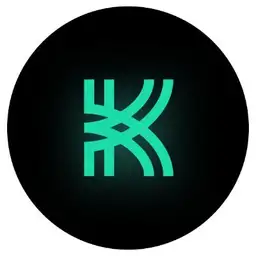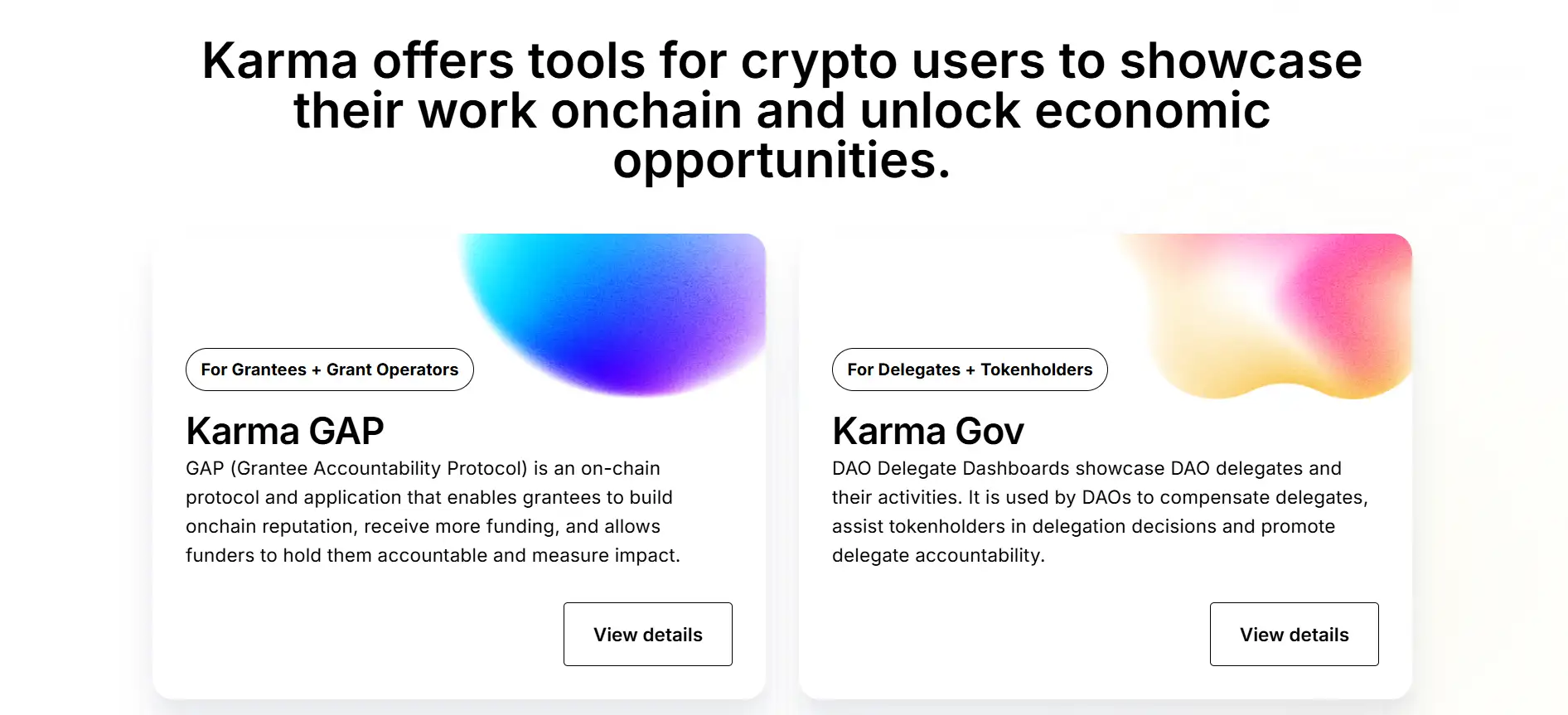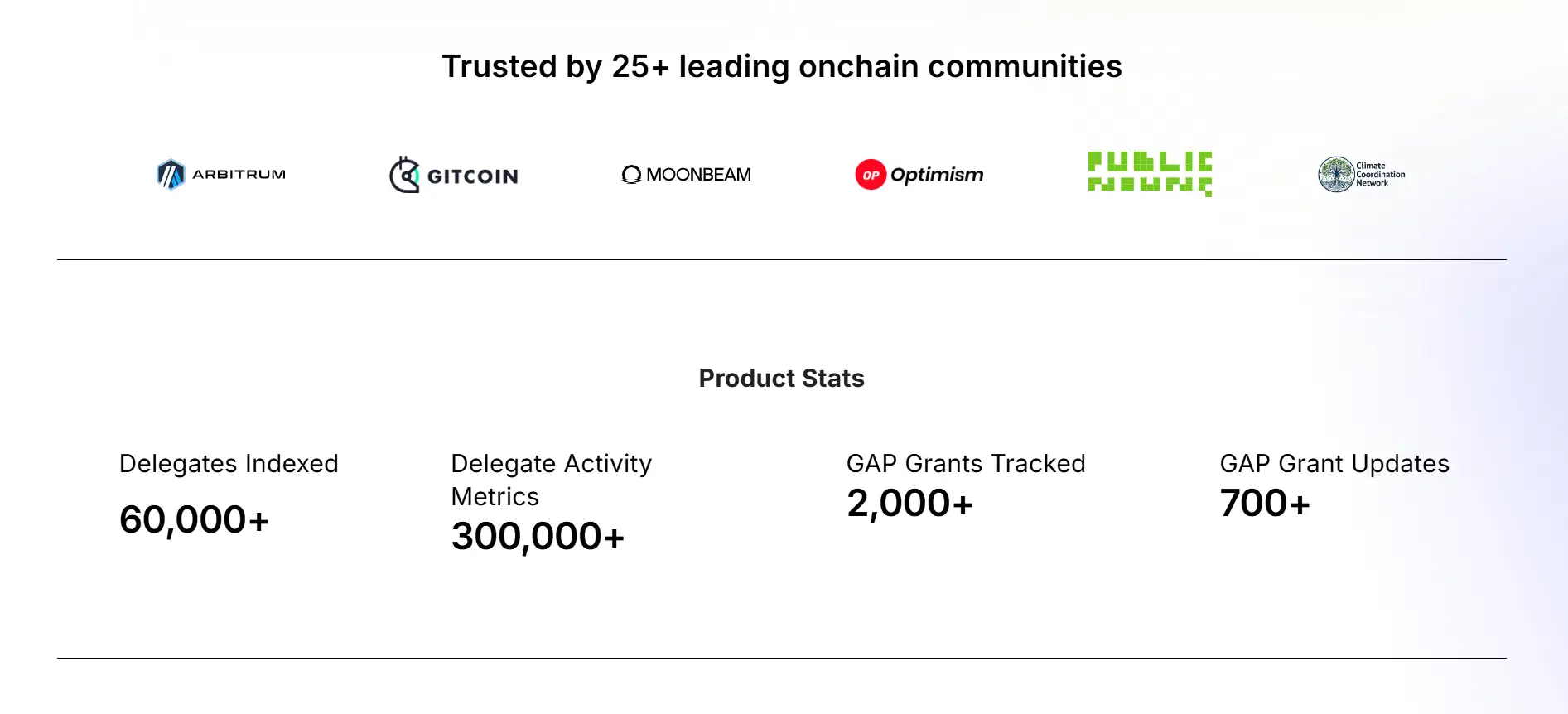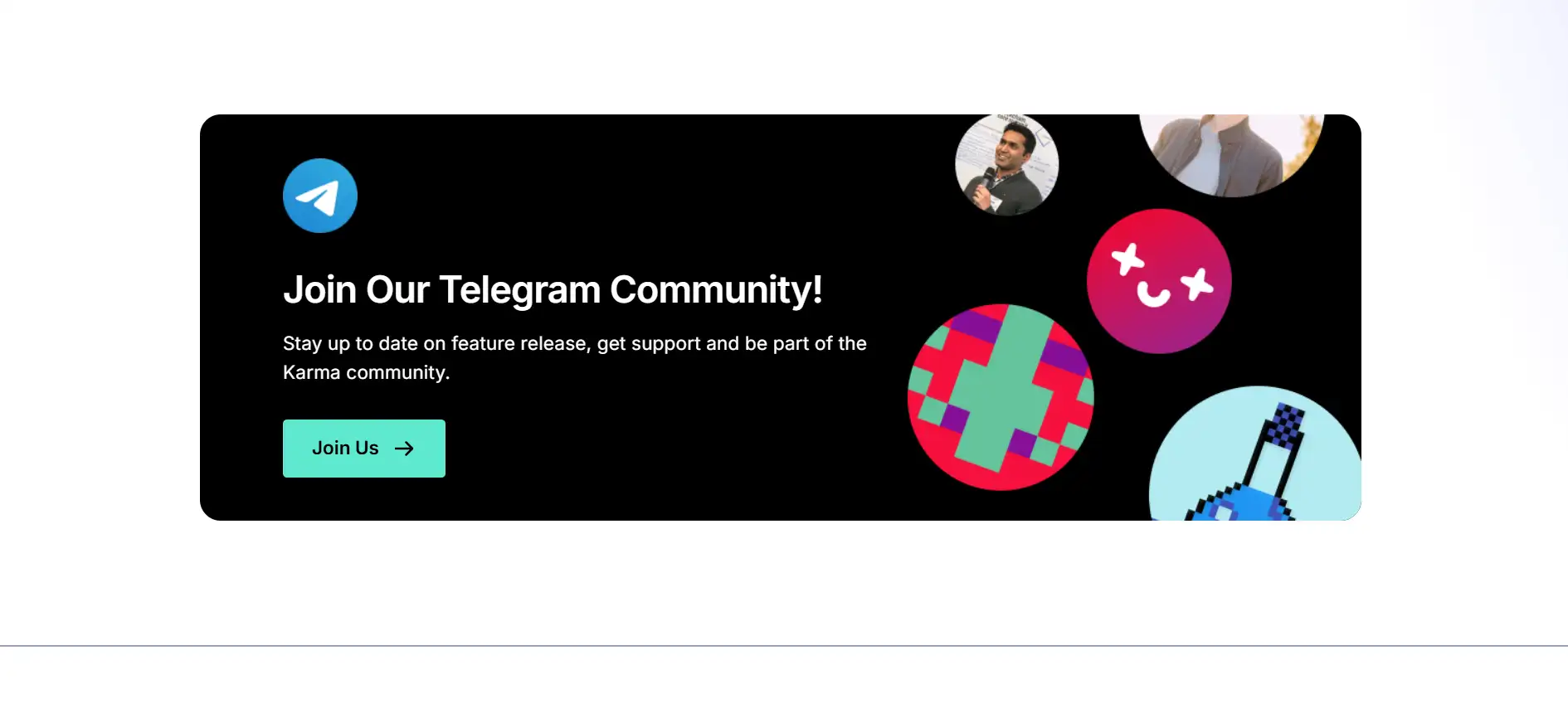About Karma
Karma is a powerful, modular platform designed to increase transparency, accountability, and visibility for contributors, delegates, and grantees in the decentralized ecosystem. It provides a unified framework for tracking contributions, building onchain reputations, and enabling decentralized governance participants to make data-driven decisions. Whether you're a grantee, a DAO delegate, or a tokenholder, Karma delivers a comprehensive infrastructure that bridges off-chain and on-chain activity.
With products like Karma GAP (Grantee Accountability Protocol) and Karma Gov (Delegate Dashboards), the platform offers tailored tools for both funders and contributors. GAP allows grantees to create verifiable records of their project progress onchain, making it easier for them to access additional funding and for communities to evaluate their effectiveness. Meanwhile, Karma’s Delegate Dashboards make delegate behavior visible, measurable, and rewarding. Karma is trusted by over 25 leading onchain communities, including Arbitrum, Optimism, Gitcoin, and ENS.
Karma is reshaping how the crypto ecosystem addresses grant management and DAO governance by introducing a set of open, verifiable protocols and tools that empower communities to function more transparently and effectively. The project was born from a recognized need within the industry: millions of dollars in grants are distributed annually without a standardized method to track their usage or measure real impact. By addressing the problem of limited visibility, fragmented data, and poor accountability, Karma positions itself as a foundational layer for onchain reputation systems and governance tooling.
At its core is the Grantee Accountability Protocol (GAP), a permissionless onchain system where grantees create comprehensive project profiles and record milestones, updates, and impact reports. These are verified through the Ethereum Attestation Service (EAS), ensuring all data is immutable and trustworthy. This onchain visibility helps weed out “grant farming” behaviors, where teams seek funding without meaningful delivery. In addition, GAP enables cross-DAO reputation portability—so a grantee’s record can follow them across the ecosystem, unlocking new opportunities and funding.
For DAOs and tokenholders, Karma Gov provides Delegate Dashboards that aggregate delegate data like voting history, forum participation, and onchain contributions. These dashboards empower DAOs to make compensation decisions based on performance, and help tokenholders delegate their voting power more effectively. With over 60,000 delegates indexed and 300,000+ activity metrics tracked, Karma is already supporting top-tier ecosystems.
What sets Karma apart is its commitment to being 100% onchain and community-centric. Every part of the GAP data structure—from project profiles and grants to milestones and updates—is publicly accessible and supports interoperability. DAOs and contributors are encouraged to build on top of Karma using its SDKs and APIs. Beyond the core products, Karma also maintains a Grant Program Registry curated by the Cartographer Syndicate, providing a centralized resource for discovering funding opportunities.
Notable platforms that utilize Karma’s tools include Arbitrum, Optimism, Gitcoin, ENS, and Idle Finance. While competitors such as Clr.Fund, and Boardroom provide governance tools or funding management systems, Karma uniquely integrates reputation systems with grant tracking and delegate dashboards under one open protocol.
Karma provides numerous benefits and features that make it a standout platform in the onchain governance and grant management space:
- Grantee Accountability Protocol (GAP): Enables grantees to post updates and milestones onchain, building verifiable reputations and securing future funding.
- Delegate Dashboards: Helps DAOs monitor, compensate, and reward delegates based on quantifiable activity and behavior.
- Cross-DAO Reputation Portability: Contributors can use their onchain resume to prove credibility across different DAOs and ecosystems.
- Data Integrity via Ethereum Attestation Service (EAS): All updates are stored immutably using EAS schemas, ensuring security and openness.
- Open APIs and SDKs: Allows developers to build custom interfaces and tools using Karma’s infrastructure.
- Grant Registry: A curated directory of available grants across leading Web3 communities, enabling builders to find relevant funding opportunities.
- Community-Driven Governance Tools: Supports contributor dashboards, role assignment automations, governance statistics, and more to streamline DAO operations.
Karma offers a seamless onboarding process for grantees, delegates, and DAOs looking to integrate accountability and governance tools into their workflow:
- Create a Wallet: First, ensure you have a compatible crypto wallet like MetaMask or WalletConnect.
- Register on Karma GAP: Visit Karma’s official website and register your project through the GAP interface.
- Build Your Project Profile: Add details such as your mission, social links, description, and challenges you're solving. This serves as your public resume.
- Link Grants: Associate any existing or new grants with your project and define milestones to track your work.
- Post Milestones & Updates: Use the GAP dashboard to post updates. Each milestone can include detailed proof-of-work and will be publicly verifiable through EAS.
- Gain Visibility: DAO contributors, grant managers, and the community can view your activity, improving your reputation and chances for future funding.
- Use Delegate Dashboards: If you're a DAO member or tokenholder, explore the delegate dashboards to analyze, delegate, or reward high-performing DAO delegates.
- Join the Community: Stay informed through Twitter, and Discord.
- Explore Documentation: Learn more through the GAP Docs and API Documentation.
Karma FAQ
Karma GAP relies on community-driven transparency and onchain attestations. If a grantee posts misleading or false updates, their reputation on the platform can be negatively impacted. Communities and grant managers can verify milestone proofs and flag discrepancies. Since all updates are stored onchain using Ethereum Attestation Service (EAS), any manipulations are publicly viewable and traceable. This encourages honest reporting and deters bad actors from gaming the system.
Yes, Karma provides open access to data through its Delegate API and SDK documentation. DAOs can use these resources to create custom dashboards, visualize delegate activity, or analyze contributor reputation. This modular design allows DAOs to maintain brand consistency while benefiting from Karma’s robust infrastructure.
Grant farming — where teams seek funding with no intent of delivering value — is a known issue in the ecosystem. Karma GAP helps identify these patterns by requiring grantees to post verifiable milestones and updates. Using onchain records and activity logs, communities can analyze behavior across grants and detect red flags such as repeated underperformance or lack of follow-through. This visibility helps prevent misuse of community funds.
The Ethereum Attestation Service (EAS) is central to Karma’s design. It ensures that all grant-related activities—milestones, updates, and attestations—are stored immutably onchain. This means grantees cannot retroactively edit progress reports, and DAOs can trust the verifiability of every contribution. EAS schemas also enable compatibility across different tools, making Karma a highly interoperable accountability solution.
Absolutely. Karma is designed to be user-friendly for both large and emerging communities. Smaller DAOs can use the existing interfaces like Delegate Dashboards and GAP project profiles without writing any code.
You Might Also Like












